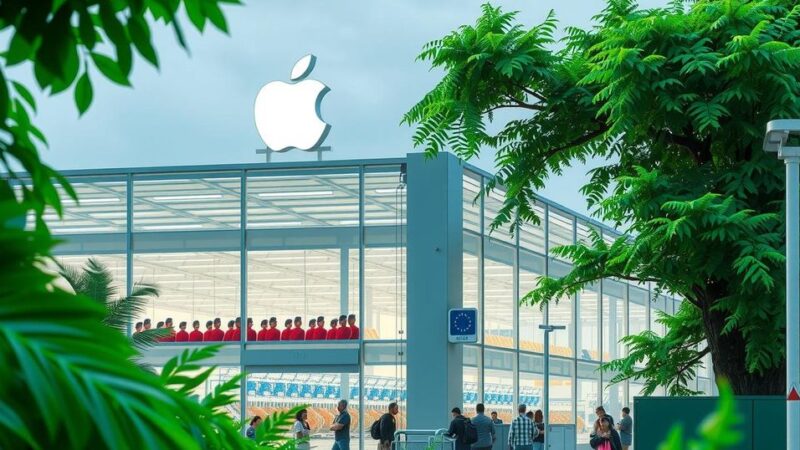The Democratic Republic of Congo has filed a lawsuit against Apple, accusing the company of utilizing conflict minerals in its devices. The DRC’s move underscores the severe implications of such sourcing, tied to human rights violations and armed groups. The case has attracted attention in Belgium and France, potentially impacting corporate accountability standards in global supply chains.
The Democratic Republic of Congo (DRC) has initiated legal action against Apple, alleging the company’s use of “conflict minerals” in its products, specifically iPhones. These minerals, categorized under the term “blood minerals,” are linked to human rights abuses and armed conflict funding. The DRC seeks accountability in light of Apple’s sourcing practices regarding minerals such as tin, tantalum, tungsten, and gold, collectively known as 3TG.
The controversy surrounding conflict minerals stems from the significant natural resources found in the DRC, including gold and cobalt, valued up to $24 trillion. Unfortunately, the mining industry in the region has become plagued by violence, involving over 100 armed groups vying for control. Legal complaints have been placed in Belgium and France, highlighting the importance of responsible sourcing precepts under Corporate Social Responsibility (CSR).
The ongoing legal proceedings against Apple reflect broader concerns regarding ethical sourcing of minerals in conflict regions. As companies strive to adhere to CSR principles, the case highlights the importance of transparency and accountability in supply chains associated with human rights risks. It remains to be seen how this situation will evolve and what accountability measures will be enacted.
Original Source: gigazine.net






